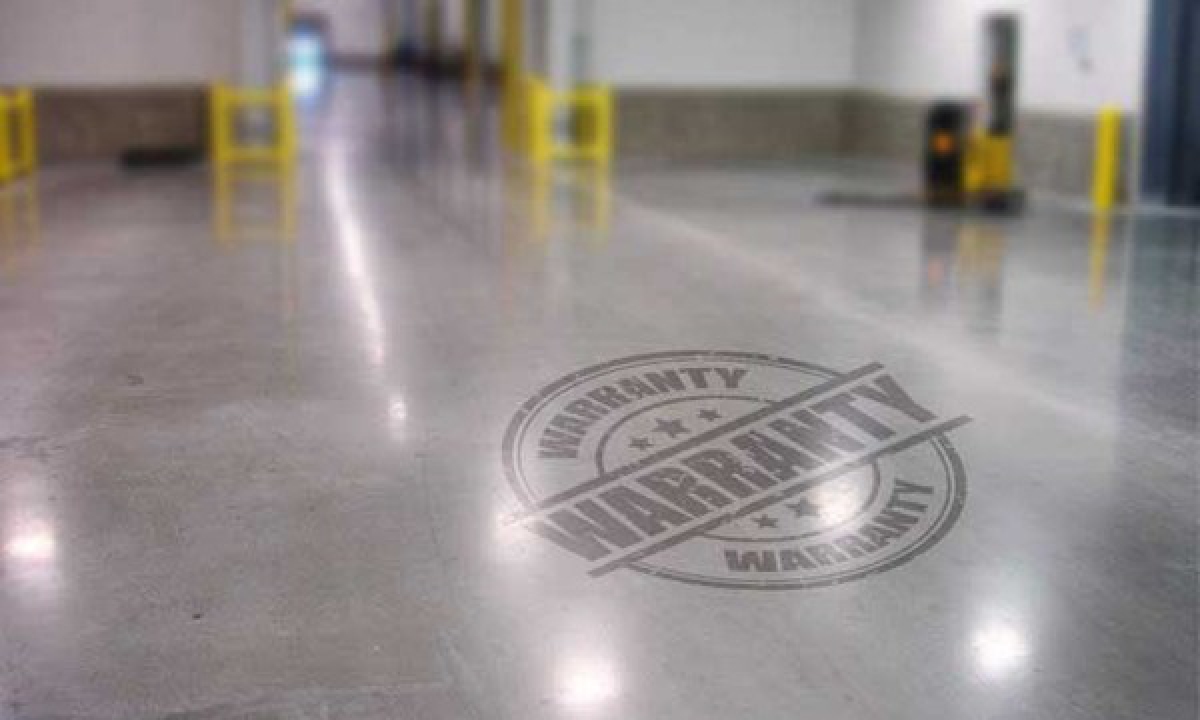
Industrial Concrete Floor Warranties: What to Expect
When it comes to industrial concrete floors, you want to mitigate risk. Hiring a reputable concrete floor contractor is one way to do it. Adopting a thorough monitoring and maintenance program is another. But before you do all that, you need to think about the ultimate risk mitigation strategy: the warranty.
Industrial concrete floors are one of the most valuable parts of a facility and are designed to withstand years of abuse, so it’s only natural that they’re covered in some way to ensure superior workmanship and value. But how much do you really know about concrete floor warranties? What should you expect? At a minimum, you should be aware of when to think about them, how long they should be and what they normally cover and what they DON’T cover.
Questions About Your Warranty
Before you even think about signing a contract, you should do some research on warranties. As the nation’s consumer protection agency, the Federal Trade Commission (FTC) is a great resource for warranties and other consumer information. Once you know enough about warranties in general, bring them up with your potential concrete floor contractor. Here are some good questions to ask them:
- Who is responsible for the warranty? You want the contractor to be responsible for the warranty, not someone else (like a subcontractor).
- Are aspects of my warranty negotiable? Ask for a warranty template and see how your contractor traditionally handles warranties.
- Will the warranty affect the project schedule? A good contractor will delay the schedule to ensure a perfect project and prevent damage down the road caused by inferior work installed by other trades. No one likes delays, but it shows the contractor is invested in delivering a superior product.
- Are their implied warranties? You want everything in writing; it helps both the contractor and the customer avoid problems.
Next, we’ll expand on another important warranty question: the length.
The Length of Your Warranty
The standard length for a construction warranty is one year, but because of historically recurring floor problems after the first year (usually due to poor design or installation), customers have been requesting longer ones. It is very uncommon to see industrial concrete floor warranties longer than 1 year except from reputable, experienced industrial concrete floor contractors.
With these concrete floor warranties, the contractor will usually fix any defective material or workmanship damage at least once per year during the warranty period. So what’s the right length for you? Again, most customers want more than one year, but a five-year warranty can be expensive. Since most issues come to surface in the first year, a “sweet spot” that benefits both customers and contractors is two to three years. (It’s unlikely there will be major damage or deterioration after the first year.) Of course, length is just one aspect of your warranty that changes from contractor to contractor, so keep that in mind.
What Your Warranty Covers
Before you get into what your concrete floor warranty does and doesn’t cover, it’s important to think about the distinction between intentional and unintentional damage. Intentional damage is when the facility owner or staff damages the floor deliberately, accidentally, operationally or via improper maintenance. Unintentional damage is any damage caused by defects in the workmanship or quality of materials. When it comes to warranties, intentional damage isn’t covered and unintentional damage is usually covered.
To give a few examples, things like hairline cracks, gouges (facility-caused damage), floor discoloration, curling and blemishes aren’t covered under warranty. That’s right, curling is a design issue, not installation issue and therefore is not covered under the floor contractor’s warranty unless the floor contractor design/builds the floor. Things like surface spalls, rock pop-outs and significant cracks if caused by the floor contractor are covered. Again, specific warranty coverage depends on the contractor.
Joint fillers: One of the most common things to repair in a concrete floor is joint filler. Concrete slabs expand and contract throughout the year depending on the temperature and many people don’t realize that. This causes filler to split and separate requiring removal and replacement if not properly maintained. Because of this, a good contractor doesn’t include joint fillers in the warranty, which is normal.
Now you have a good idea of what to expect when it comes to industrial concrete floor warranties. Once you and your concrete floor contractor are on the same page, you’ll have a warranty you can both appreciate.
